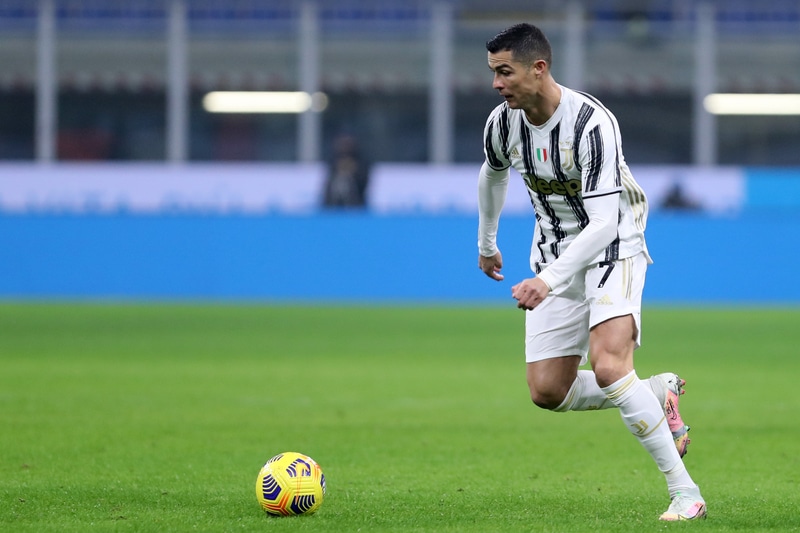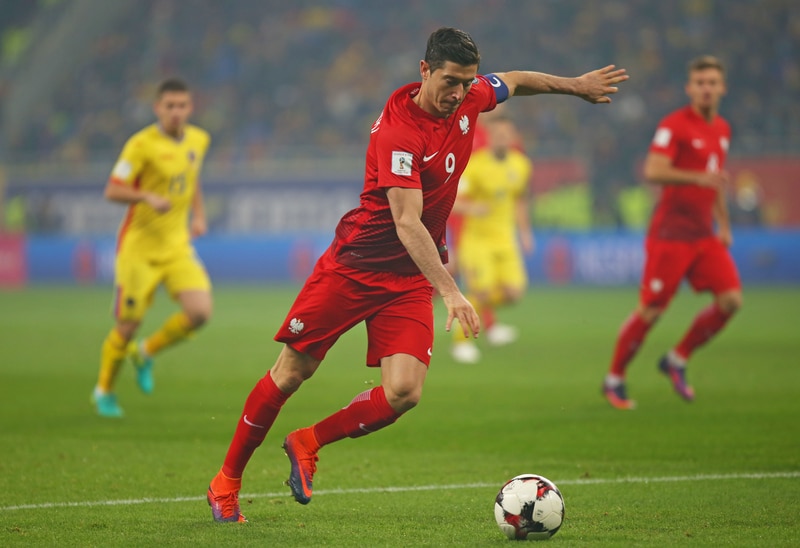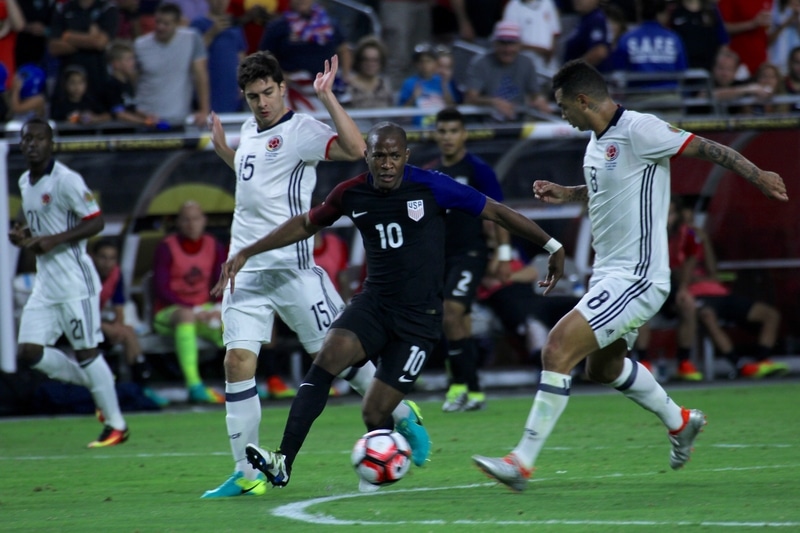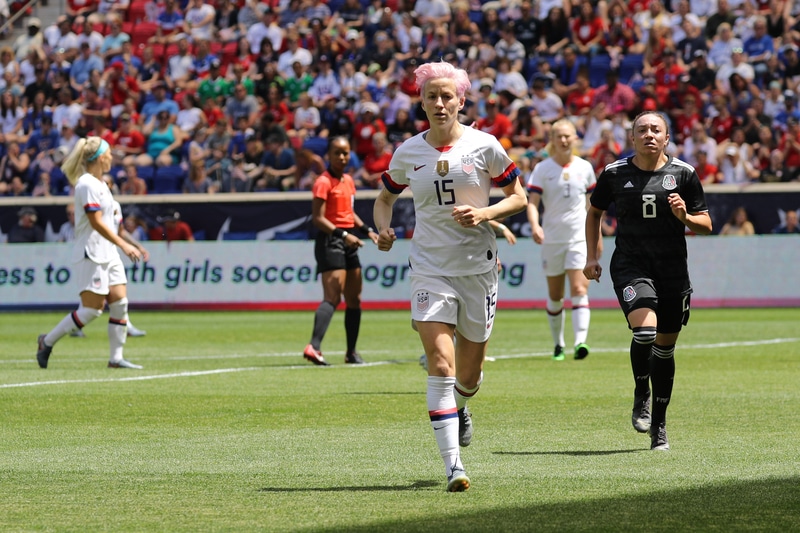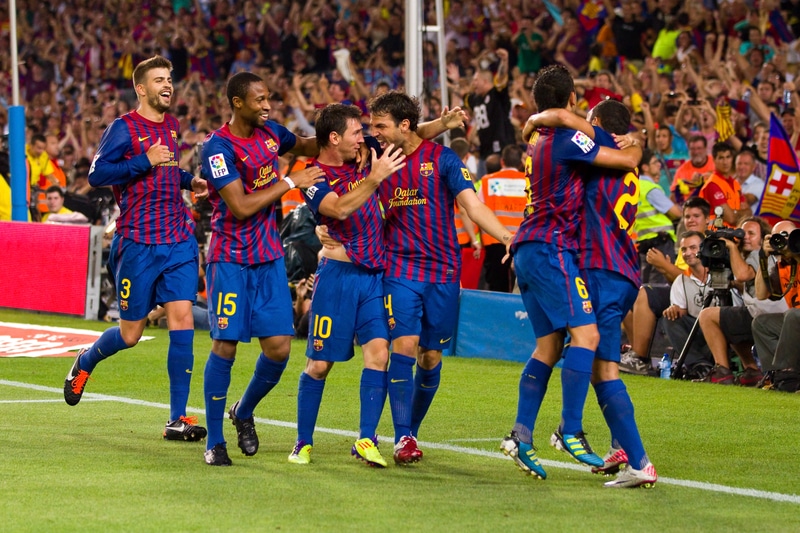Last updated on October 23rd, 2023 at 04:06 pm
The false 9 in soccer is a deep-lying striker who sets up between the center forward and the number 10. Generally, the traditional number 9 player is the team’s focal point on offense, playing high up the pitch. The false nine presses on the opposition’s backline and stays ready to get on the end of any crosses to take shots at goals, which can confuse the defense on who to guard.
So, what else are the responsibilities of a false 9 in soccer? What is the history of the false 9 position, and is it the same as a striker? What makes for an excellent false 9 in soccer, and what are the pros and cons of this position?
Here is the complete breakdown of the false 9 position in soccer.
What are the Responsibilities of a False 9 in Soccer?
The traditional number 9 player is the team’s focal point, playing high up the pitch. A false nine presses on the opposition’s backline and stays ready to get on the end of any crosses. The false 9 will also drop deep into the midfield and help with the team’s possession plan.
The false 9 frees up space for the wide forwards and attacking midfielders on the pitch. Freeing up space creates havoc when the other team’s players eventually leave their positions. In doing so, the teammates of the false 9 may exploit the situation to score.
What Makes a Good False 9 in Soccer?
A good false nine player can cover ground quickly and efficiently, have exceptional dribbling, excellent passing skills, and the ability to score goals. A great false 9 player should also have excellent field perception and anticipation for what the defense is doing. Essentially, you can boil down the false 9 into these four bullet points.
- Interpret if they should pass the ball to a teammate in the offensive zone of the field
- Dribble with the ball to create separation on the defense to set up an offensive play
- Set up a pass to create a goal-scoring chance
- Shoot with the ball to score a goal for their team
Is a False 9 a Striker?
A false 9 is a hybrid position that includes being a team striker and playmaker. The correct term for a false 9 player on the pitch is a “deep-lying striker.”
Famous False 9 Soccer Players
This position has become increasingly popular in the Premier League with clubs like Manchester United, Manchester City, Liverpool, and Roma today. Roma, back in 2006, had Manager Luciano Spalletti go with attacking midfielder Francesco Totti to be the false nine due to injuries on the team.
When Pep Guardiola was managing Barcelona, their 2008/09 season with Lionel Messi as the team’s false nine led to great success. That season also established Lionel Messi as one of the best players in the game due to his passing, assisting, and goal-scoring stats.
Out in MLS, NYCFC, would experiment with the false 9 position in 2022. NYCFC would experiment with this position because their golden boot winner, Valentin Castellanos, went to La Liga. Castellanos was the team lead scorer in 2022, but once we left, the team had to replace his position. To help find the future striker, the team would implement a false 9 striker with numerous players to see who could slide into that role with that player’s departure.
What are the Pros and Cons of Using the False 9 in Soccer?
Pros of a false 9 include confusing an opposing team because they are unsure of the team’s offensive setup. The use of the false 9 allows the team to create many different passing angles, which helps retain possession and move their way up the pitch. When receiving the ball between the opposition’s defensive and midfield lines, the false 9 can choose to drive at the defense, dribble, look for a dangerous through-ball, or take a shot at the goal.
The false nine can also drive the opposition to compromise their game plan to deal with an unpredictable player. Either push a defender up onto them (which creates problems at the back) or make sure a defensive midfielder is always on hand to cover them. With players running past the false 9 into the gaps and space they’ve left behind, teams play lose because they are still determining how to defend against this particular football tactic.
The cons of using a false nine position include sacrificing a focal point which can cost a valuable outlet if the team is looking to go long or stretch a play. A play can get overcrowded when the opposition plays two defensive midfielders or presses up high to compress the space between the defense and midfield, limiting the area where the false nine can play successfully.
Conclusion: What is a False 9 in Soccer?
In summary, a false 9 is a type of striker position on the soccer field between the center forward and the number 10 on the pitch. Teams like to use a false 9 position to confuse the defense into who is the primary striker on the team. Since the position is a bit of a hybrid, the false 9 can either set up offensive plays closer to their opponent’s goal area or take the shot themselves.
However, there are cons to using the false 9 position on a soccer pitch. One of the cons is that you remove that traditional striker role, which can lead to confusion on the pitch. Sometimes when a team is experimenting with using a false 9, there needs to be clarity on who should take shots on the goal. Sometimes you will see goal-scoring chances go away because players are unsure who should take the shot, which could lead to golden opportunities not being taken during a game to score.
Similar Posts:
What are Soccer Supporter Groups?
Why Do Soccer Games End in a Tie?
Greg Kristan, owner of The Stadium Reviews, LLC and TM Blast, LLC, brings his extensive experience visiting over half of the MLB ballparks, along with numerous MLS, NHL, NBA, and NFL venues, to provide in-depth coverage on the bag policy, food options, and parking. He has also been interviewed about his experiences on several sports podcasts.

